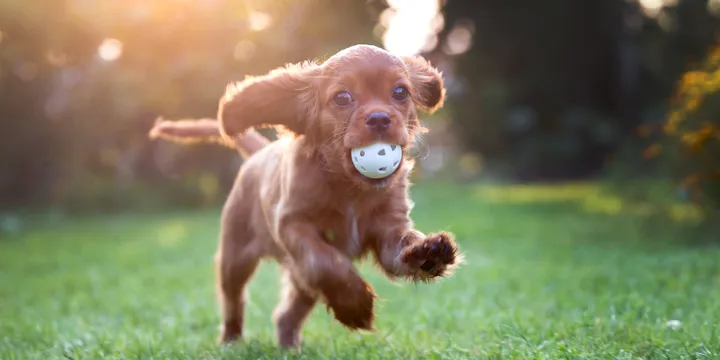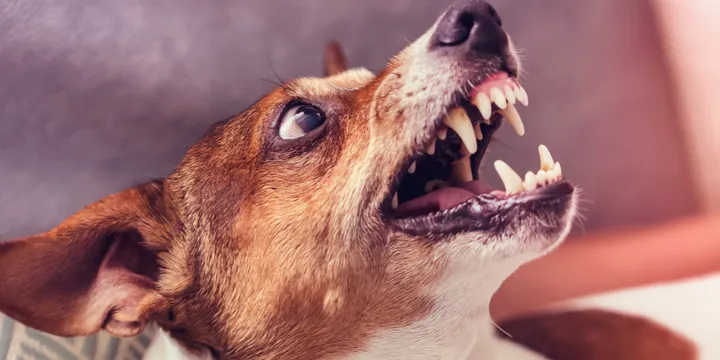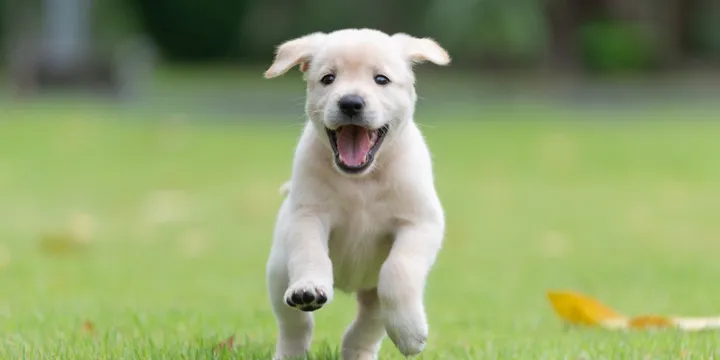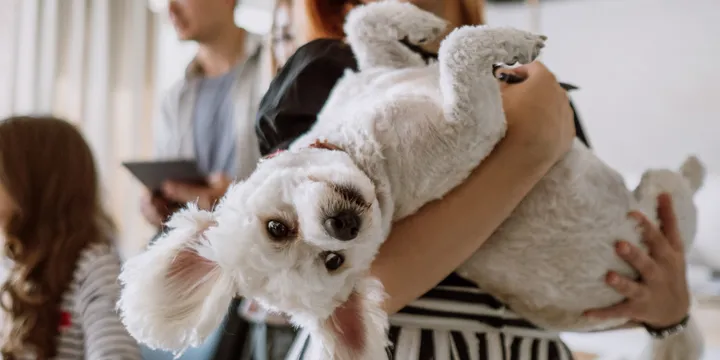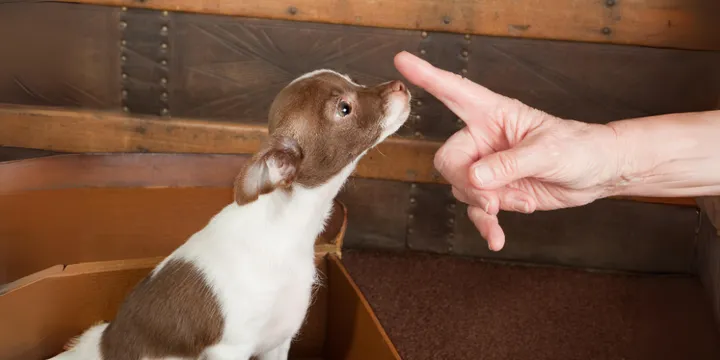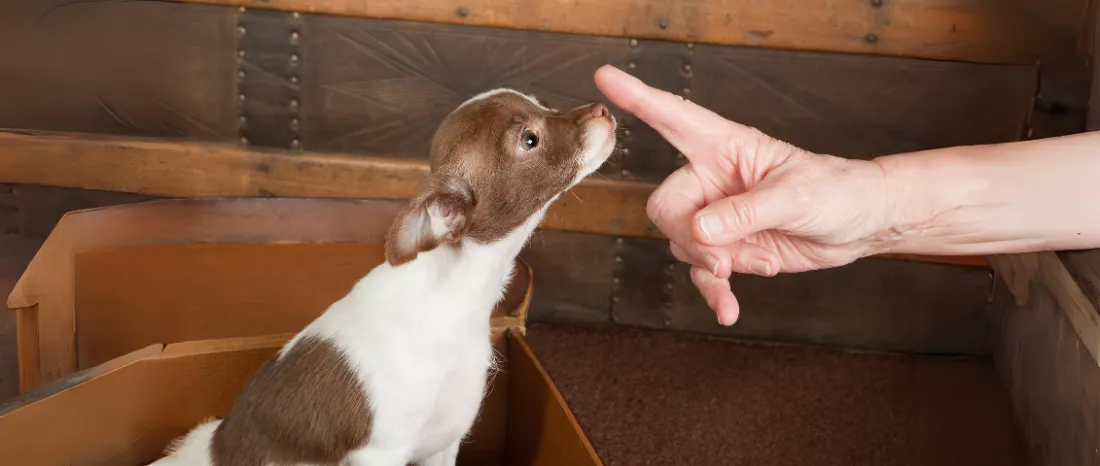
How Do Puppies Learn

Quick Summary
- Carefully consider the outcomes of your puppy's actions.
- Avoid reinforcing negative behavior, including giving too much attention to it.
- Reward positive behavior with plenty of attention and appealing treats.
- Ensure that your puppy's good habits are maintained.
- Limit your puppy's access to things you don't want them to touch.
Teaching Your Puppy Right from Wrong
Our furry friends, dogs, can do amazing tricks and even help us with important tasks. They can herd sheep, find lost items, dance to music, guide disabled owners, and even detect people in need during emergencies. Dogs are excellent learners with a wide range of skills.
Teaching a puppy what's right and wrong should be simple. However, as people's views on dogs change, it becomes confusing to know how to teach puppies what's acceptable. Dog owners might get conflicting advice, with some saying using treats is too soft, while others think traditional methods are too harsh.
Puppies learn really fast. They learn from their owners, family members, and everything around them. We want them to sit, come, lie down, and stay. But in their first few weeks at home, many puppies end up learning to whine, jump up, snatch, and bark. Controlling this process is crucial, and understanding how it works is the key to success.
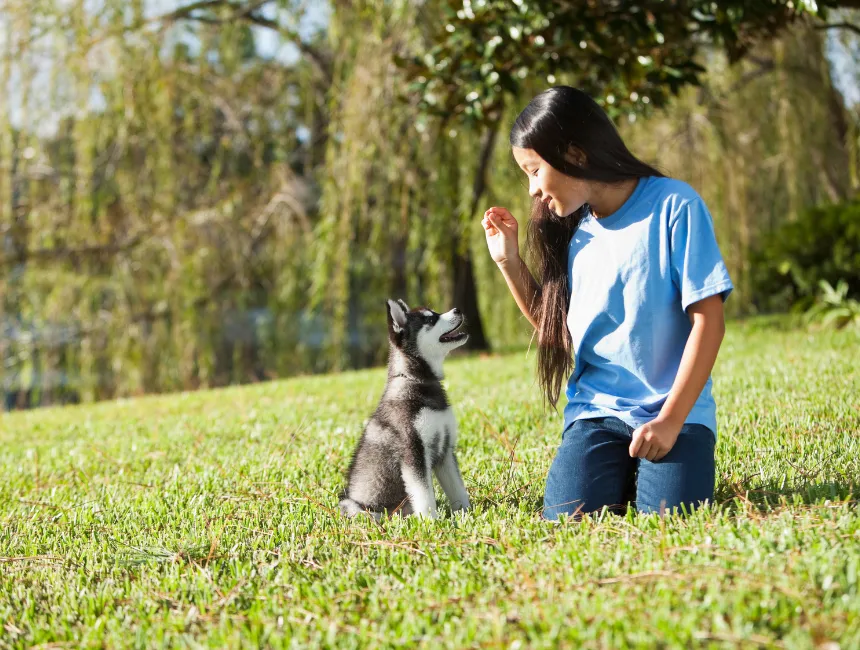
The learning process in dogs is simple. Every action a puppy takes has consequences, falling into three categories: good (things got better), bad (things got worse), and indifferent (nothing changed). These consequences shape the puppy's future behavior. For example, if a puppy pokes a ball and it rolls, that's a good consequence, and the puppy will likely do it again.
Timing matters in this process. Consequences must follow the action closely to be effective. If the puppy pokes a wasp, gets stung later, and doesn't connect the two, the lesson is lost. No outcome, or indifference, can also lead to the behavior dying out over time, a process called 'extinction.'
Understanding these outcomes helps control a puppy's behavior. Modern dog training relies less on punishment and more on positive reinforcement. Reinforcers must be things the dog finds desirable, and food is a great tool for training. However, treats should be given intermittently, not predictably, to maintain the dog's interest.
The game of consequences can be applied to anything a puppy does, making training fun for both the owner and the dog. The next part will delve into practical applications of this knowledge in teaching specific behaviors and addressing common puppy issues.
Practical Applications of Puppy Training
Now that we understand the basics of how puppies learn and the importance of positive reinforcement, let's explore how to apply this knowledge in practical situations. Whether you're teaching your puppy new behaviors, addressing unwanted habits, or simply having fun together, the game of consequences remains at the heart of effective training.
Training New Behaviors:
- Command Training: Use clear and consistent commands when teaching your puppy new behaviors. For example, when teaching "sit," wait for your puppy to naturally sit, then reward and praise immediately.
- Rewards: Find what motivates your puppy. It could be treats, toys, or even attention. Use these rewards effectively to reinforce good behavior.
Correcting Unwanted Behaviors:
- Extinction: When your puppy exhibits undesirable behavior, consider ignoring it or providing no benefit. For instance, if your puppy jumps on you for attention, ignore the behavior and reward calmness.
- Alternative Behavior: Reinforce an alternative behavior to replace the unwanted one. If your puppy tends to bite, provide a chew toy as an acceptable alternative.
Consistency is Key:
- Timing: Be consistent in the timing of your rewards and consequences. Immediate feedback helps your puppy associate actions with outcomes.
- Predictability: While unpredictability is crucial for rewards, be consistent in your expectations. Your puppy should understand what behaviors are acceptable.
Preventing Bad Habits:
- Proactive Management: Anticipate situations where your puppy might develop bad habits and take proactive measures. For instance, if your puppy tends to chew on furniture, provide appropriate chew toys.
Handling Challenges:
- Persistence: Understand that training takes time. Be persistent and patient, especially when dealing with challenging behaviors.
- Adaptability: Be ready to adapt your training methods. What works for one puppy may not work for another, so tailor your approach to your puppy's unique needs.
Creating a Positive Environment:
- Positive Associations: Ensure that your puppy associates positive experiences with certain activities. For example, associate going into a crate with treats and praise.
Addressing Specific Scenarios and Building a Model Canine Citizen
Now that we've covered the fundamentals and practical applications of puppy training, let's explore specific scenarios and common behaviors that may arise during your puppy's development. By addressing these situations, you can lay the foundation for a well-behaved and happy canine companion.
Potty Training:
- Establish Routine: Create a consistent schedule for feeding, playtime, and bathroom breaks. Praise and reward your puppy for eliminating in the designated area.
- Accidents Happen: If accidents occur, avoid punishment. Instead, clean the area thoroughly to remove any scent that might attract your puppy back to the same spot.
Biting and Mouthing:
- Redirect Behavior: Provide appropriate chew toys and redirect your puppy's attention when biting or mouthing occurs. Reward calm behavior with positive reinforcement.
- Socialization: Encourage positive interactions with other puppies and dogs to teach bite inhibition.
Separation Anxiety:
- Gradual Departures: Practice leaving your puppy alone for short periods, gradually increasing the time. Reward calm behavior and avoid making a fuss when returning.
- Comfort Items: Provide comfort items, such as toys or a blanket, to help your puppy feel secure when alone.
Jumping Up:
- Ignore and Reward: If your puppy jumps for attention, ignore the behavior until all four paws are on the ground. Reward the desired behavior promptly.
- Training Sessions: Use short training sessions to teach commands like "sit" to replace the jumping behavior.
Leash Training:
- Positive Associations: Associate the leash with positive experiences by rewarding your puppy when they accept the leash. Practice short, enjoyable walks to build positive associations.
- Patience: Allow your puppy time to get used to the sensation of the leash. Avoid pulling and use gentle guidance.
Polite Greetings:
- Reward Calm Behavior: Teach your puppy to greet people politely by rewarding calm behavior. Discourage jumping by withholding attention until the puppy is calm.
- Consistent Expectations: Ensure that family members and visitors are consistent in reinforcing polite greetings.
Obedience Commands:
- Consistent Reinforcement: Continue reinforcing basic commands like "sit," "stay," and "come" in various situations. Use positive reinforcement to make obedience enjoyable for your puppy.
- Advanced Training: Gradually introduce more advanced commands to keep your puppy mentally stimulated.
Nurturing a Friendly and Well-Adjusted Canine Companion
As you embark on the journey of raising your puppy, it's crucial to address a topic of utmost importance: aggression prevention. While common behavioral issues may be manageable, aggression poses serious challenges and requires a proactive approach.
Recognizing Early Signs:
- Understanding Cues: Be attentive to subtle signs of discomfort or stress in your puppy. These may include growling, baring teeth, or stiff body language.
- Seek Professional Guidance: If you observe concerning behaviors, consult a professional dog trainer or behaviorist for guidance.
Socialization and Exposure:
- Positive Experiences: Continue socializing your puppy with various environments, people, and other dogs. Positive exposures contribute to a well-rounded and confident adult dog.
- Gradual Introductions: Introduce your puppy to new experiences gradually, ensuring they feel secure and positive during the process.
Positive Reinforcement for Good Behavior:
- Consistent Reward System: Reinforce good behavior consistently. Use treats, praise, and affection to encourage positive actions and responses.
- Redirect Negative Behaviors: If negative behaviors arise, redirect your puppy's attention to appropriate activities. Avoid punitive measures that can escalate fear or anxiety.
Training for Calm Responses:
- Calm in Various Situations: Train your puppy to remain calm in different scenarios, including encountering strangers, other animals, or unfamiliar environments.
- Patience and Consistency: Practice patience and maintain consistency in training. Small, incremental progress is key to long-term success.
Responsible Ownership:
- Understanding Breed Characteristics: Be aware of your puppy's breed characteristics and tendencies. Different breeds may have unique traits that require specific attention.
- Health and Well-Being: Regular veterinary check-ups and a balanced diet contribute to your puppy's overall well-being, reducing the likelihood of behavior issues.
Lifelong Learning:
- Adapting to Growth: Recognize that as your puppy grows, their needs and behaviors will evolve. Adapt your training methods to suit their developmental stages.
- Enrichment Activities: Engage in regular play and mental stimulation to keep your dog's mind active and prevent boredom-related behaviors.
In conclusion, raising a friendly and well-adjusted dog involves continuous learning, adaptation, and a commitment to positive reinforcement. By understanding your puppy's needs, providing a loving environment, and addressing behaviors with empathy, you're not just shaping a pet but fostering a lifelong companion.
About the Author

Kelly was born and raised in the city of Worcester, MA, and has always had a great love for dogs. Her parents, now retired, both worked as veterinarians when she was growing up, which sparked her interest in animal care early on.

